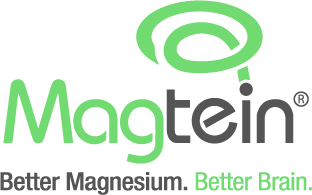The Neuroplasticity Link: How Magnesium L-Threonate Supports Synaptic Flexibility
https://magtein.com/wp-content/uploads/2025/11/image-2-1024x683.jpeg 1024 683 Riley Forbes Riley Forbes https://secure.gravatar.com/avatar/3f6c9bbe830133d8a02b6d78dd24a6cf57f35765554b3106fa7c0bce0d8772aa?s=96&d=mm&r=gNeuroplasticity is the brain’s ability to adapt, remodel, and form new connections across a lifetime. It underlies how you learn new skills, recover from challenges, and maintain mental sharpness with age. At the cellular level, this adaptability depends on synaptic flexibility – the capacity of synapses (the junctions between neurons) to strengthen or weaken in response to experience.
Magnesium sits at the center of many of these processes. And a specific form, Magtein® (magnesium L-threonate), has been scientifically studied for its ability to raise magnesium levels in the brain and support synaptic plasticity and cognitive performance over time.*
What Is Neuroplasticity – and Why Does It Matter?
Neuroplasticity refers to the brain’s capacity to reorganize its structure and function in response to stimuli, learning, and experience. This process includes:
- Synaptic plasticity – changes in the strength or number of synapses
- Structural plasticity – growth or pruning of dendrites and axons
- Functional plasticity – the brain’s ability to shift functions between regions when needed
Healthy neuroplasticity helps you:
- Learn and retain new information
- Adapt to stressors and changing environments
- Maintain attention, working memory, and problem-solving skills
- Support emotional flexibility and resilience*
However, plasticity does not remain constant. Aging, chronic stress, poor sleep, and suboptimal nutrition can gradually reduce synaptic density and efficiency. Over time, this may show up as “slower thinking,” mild forgetfulness, or reduced mental stamina.
Because neuroplasticity depends on tightly regulated biochemical pathways – especially those involving calcium, glutamate, and energy metabolism – nutrients that influence these systems can play a meaningful supportive role.*

Magnesium’s Central Role in Synaptic Function
Magnesium participates in more than 600 enzymatic reactions, many of which are concentrated in the nervous system. In the brain, magnesium helps:
- Regulate ion channels that control the flow of calcium, sodium, and potassium
- Modulate key receptors, including NMDA (N-methyl-D-aspartate) and AMPA (α-amino-3-hydroxy-5-methyl-4-isoxazolepropionic acid)
- Support ATP production in mitochondria, providing energy for synaptic signaling
- Maintain membrane stability and healthy neuronal firing patterns
One of magnesium’s most important actions involves the NMDA receptor. At resting membrane potential, magnesium sits in the NMDA channel like a gatekeeper. When conditions are right, this “magnesium block” releases briefly, allowing calcium to flow into the neuron. This tightly controlled calcium entry is crucial for:
- Long-term potentiation (LTP), the strengthening of synapses tied to learning and memory
- Long-term depression (LTD), the weakening of less-used synapses to refine circuits
If magnesium levels are too low, NMDA receptors can become overactive. As a result, calcium may rush into neurons excessively, driving excitotoxic stress and impairing synaptic health over time.*
Magnesium also influences AMPA receptors, which mediate fast excitatory signaling. Balanced NMDA and AMPA activity helps maintain a healthy signal-to-noise ratio in the brain – supporting clear thinking rather than mental “static.”*
The Challenge: Raising Magnesium Levels in the Brain
Although dietary magnesium supports whole-body health, most common supplements (like magnesium oxide or citrate) have limited impact on brain magnesium levels. The brain tightly regulates what crosses the blood–brain barrier, so only certain compounds enter neural tissue efficiently.
This is where magnesium L-threonate becomes important. Magtein pairs magnesium with L-threonic acid, a vitamin C metabolite, creating a compound that has been shown in preclinical and clinical research to:
- Cross the blood-brain barrier
- Increase magnesium concentrations in brain tissue
- Support synaptic density and plasticity*
Because neuroplasticity depends on magnesium-sensitive receptors and enzymes, improving brain magnesium availability may be one strategy to support flexible, resilient neural networks across the lifespan.*
Preclinical Evidence: Magnesium L-Threonate and Synaptic Plasticity
Several animal studies provide detailed insight into how magnesium L-threonate influences synaptic structure and function.
In a landmark Neuron study, researchers elevated brain magnesium levels in rodents using magnesium L-threonate. They observed:
- Increased synaptic density in the hippocampus (a key memory center)
- Enhanced long-term potentiation (LTP), reflecting stronger synaptic signaling
- Improvements in learning tasks, working memory, and short- and long-term recall*
Mechanistically, higher brain magnesium was associated with:
- More favorable NMDA receptor signaling
- Increased expression of synaptic proteins involved in plasticity
- Improved balance between excitatory and inhibitory transmission*
Other preclinical work has explored how magnesium L-threonate may help maintain synaptic integrity under stress. In a rat model, chronic administration of magnesium L-threonate supported memory and emotional behavior while normalizing inflammatory signaling pathways linked to synaptic health.
Although animal studies cannot be directly translated to humans, they offer compelling mechanistic evidence that brain-targeted magnesium can influence neuroplasticity from the synapse upward.*

Human Research: Cognitive Function and “Brain Age”
Human trials add another layer of evidence by looking at how magnesium L-threonate affects cognitive performance and daily function.
In a randomized, double-blind, placebo-controlled trial involving older adults with cognitive complaints, a magnesium L-threonate–based formula (MMFS-01) was studied for its effects on overall cognitive ability. Participants who received the formula showed statistically significant improvements in composite cognitive scores – such as working memory, executive function, and attention – compared to placebo.
Researchers proposed that these changes reflected a “reduction in brain age,” meaning that cognitive performance became more consistent with that seen in younger individuals. While this does not imply treatment of cognitive disease, it suggests that supporting brain magnesium levels may help maintain neurocognitive function within the normal aging process.*
Additionally, emerging research has examined magnesium L-threonate in the context of sleep quality and daytime functioning. In a randomized controlled trial of adults with self-reported sleep problems, magnesium L-threonate supplementation helped maintain or improve deep and REM sleep scores, next-day alertness, and mood compared with placebo.
Because deep sleep supports memory consolidation and synaptic remodeling, these findings further reinforce the idea that brain-targeted magnesium can influence neuroplasticity both directly (at the synapse) and indirectly (via sleep-dependent recovery pathways).*
How Magnesium L-Threonate May Support Synaptic Flexibility
Taken together, preclinical and clinical data suggest several ways magnesium L-threonate may support neuroplasticity and synaptic flexibility:
- Fine-tuning NMDA and AMPA signaling
- Magnesium helps prevent excessive NMDA activation while still allowing the calcium signals needed for learning.
- Balanced NMDA/AMPA activity supports adaptive synaptic strengthening rather than chronic overstimulation.*
- Supporting synaptic structure and density
- Animal studies show higher brain magnesium levels correlate with increased synapse number and more robust dendritic spines in memory-related regions.*
- Animal studies show higher brain magnesium levels correlate with increased synapse number and more robust dendritic spines in memory-related regions.*
- Maintaining mitochondrial energy for plasticity
- Synaptic remodeling is energy-intensive. Magnesium is required for ATP production, so adequate levels support the energetic demands of LTP, neurotransmitter recycling, and membrane repair.*
- Synaptic remodeling is energy-intensive. Magnesium is required for ATP production, so adequate levels support the energetic demands of LTP, neurotransmitter recycling, and membrane repair.*
- Promoting recovery during sleep
- By supporting deeper, more restorative sleep, magnesium L-threonate may indirectly facilitate overnight synaptic “housekeeping,” when the brain consolidates memories and prunes inefficient connections.
These effects do not turn magnesium L-threonate into a “quick fix” or a treatment for neurological disease. Instead, they position it as one tool among many for supporting the brain’s natural adaptability and cognitive performance over time.*
Lifestyle Synergy: Building a Neuroplasticity-Friendly Routine
Nutrients work best when they support broader lifestyle patterns that already favor brain health. To get the most from magnesium L-threonate, consider integrating it with habits that strengthen neuroplasticity:
- Prioritize consistent, restorative sleep
Align your sleep schedule, dim evening light, and create a wind-down routine. Deep sleep is when much of synaptic consolidation takes place.* - Stay mentally engaged
Learn new skills, practice languages, play strategy games, or engage in meaningful conversation. Challenging activities encourage the brain to build and refine neural networks. - Move regularly
Aerobic exercise and strength training both promote neurotrophic factors that support plasticity and cognitive performance.* - Support nutrition broadly
Emphasize magnesium-rich foods (leafy greens, legumes, nuts, seeds), omega-3 fatty acids, and colorful fruits and vegetables that provide antioxidants and polyphenols. These nutrients complement magnesium’s roles in cellular energy and redox balance.* - Manage stress thoughtfully
Chronic stress can impair plasticity. Practices such as mindfulness, breathing exercises, or yoga help maintain a more balanced stress response, giving neuroplasticity room to work.*
When used alongside these habits, daily magnesium L-threonate supplementation can help maintain healthy brain magnesium levels and support the networks that underlie learning, memory, and cognitive resilience.*

Daily routines that include well-studied magnesium forms can help support long-term cognitive resilience and synaptic flexibility.
Summary: Supporting the Brain’s Capacity to Adapt
Neuroplasticity allows the brain to adjust, learn, and stay resilient throughout life. This adaptive capacity rests on healthy synapses, efficient energy metabolism, and finely tuned neurotransmission.
Magnesium L-threonate offers a research-backed way to support these processes by increasing brain magnesium levels and influencing pathways tied to synaptic density, plasticity, sleep quality, and cognitive performance.* Although it is not intended to diagnose, treat, cure, or prevent disease, it can play a meaningful supportive role when combined with nutrient-dense foods, restorative sleep, regular movement, and ongoing mental engagement.
In this way, magnesium L-threonate fits into a broader, science-based approach to long-term brain health – one that focuses on giving your nervous system the resources it needs to adapt, connect, and thrive.*
References
- Slutsky I, Abumaria N, Wu LJ, et al. Enhancement of Learning and Memory by Elevating Brain Magnesium. Neuron. 2010; 65(2):165–177. doi:10.1016/j.neuron.2009.12.026
- Liu G, Weinger JG, Lu ZL, Xue F, Sadeghpour S. “Efficacy and Safety of MMFS-01, a Synapse Density Enhancer, for Treating Cognitive Impairment in Older Adults: A Randomized, Double-Blind, Placebo-Controlled Trial.” J Alzheimer’s Dis. 2016;49:971-990.
- Zhou X, Huang Z, Zhang J, et al. Chronic Oral Administration of Magnesium-L-Threonate Prevents Oxaliplatin-Induced Memory and Emotional Deficits by Normalization of TNF-α/NF-κB Signaling in Rats. Neurosci Bull. 2021;37(1):55-69. doi:10.1007/s12264-020-00563-x
- Hausenblas H, Lynch T, Hooper S, Shrestha A, Rosendale D, Gu J. “Magnesium-L-threonate improves sleep quality and daytime functioning in adults with self-reported sleep problems: A randomized controlled trial.” Sleep Medicine: X. August 17, 2024.
- Gröber U, Schmidt J, Kisters K. Magnesium in Prevention and Therapy. Nutrients. 2015; 7(9):8199–8226.
These statements have not been evaluated by the Food and Drug Administration. This product is not intended to diagnose, treat, cure, or prevent any disease.





























